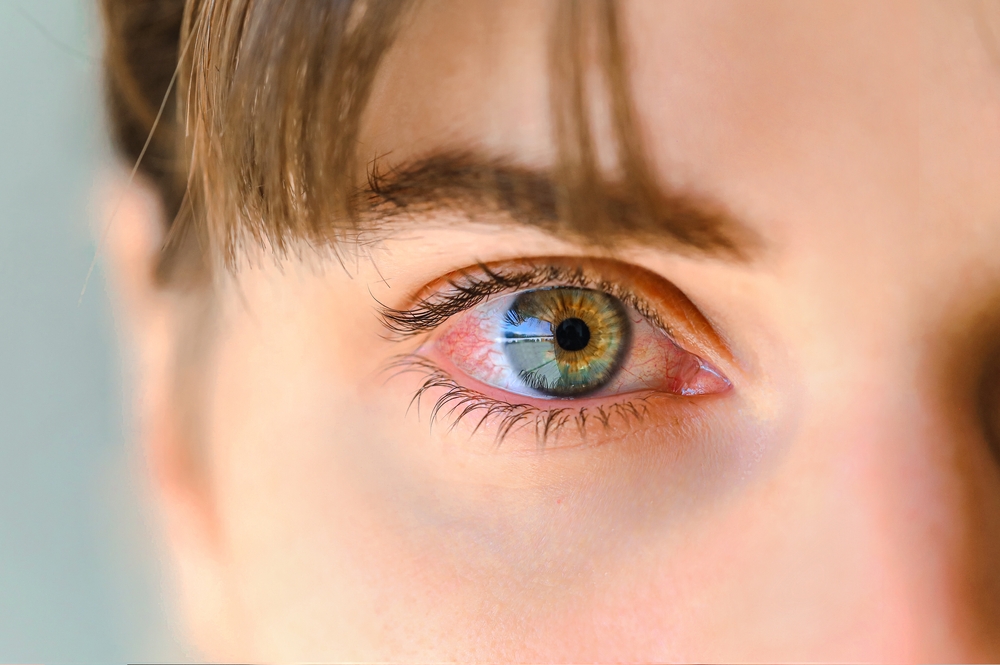
Conjunctivitis, often referred to as "pink eye," is a common eye condition that can cause redness, itching, and a distinct discharge. It affects the conjunctiva, the thin, clear tissue that lies over the white part of the eye and the inside of the eyelid. It's essential to understand what conjunctivitis is, its causes, symptoms, and treatment methods to protect your eye health.
What Are the Causes of Conjunctivitis?
Three main types of conjunctivitis exist: allergic, viral, and bacterial. Each type has unique causes. Allergic conjunctivitis is caused by the body's reaction to allergens such as pollen, dust mites, or pet dander. It's often seasonal, coinciding with high pollen counts, but can also occur year-round.
Viral conjunctivitis is caused by a virus, most commonly the adenovirus, which is associated with respiratory infections. It's highly contagious and can easily spread in environments where people are in close contact, such as schools or offices.
Bacterial conjunctivitis, on the other hand, is caused by bacteria, such as Staphylococcus or Streptococcus. It can occur when bacteria enter the eye or when the eye's natural defenses are weakened. Like viral conjunctivitis, bacterial conjunctivitis is also contagious.
Identifying Conjunctivitis: Symptoms to Look Out For
Recognizing conjunctivitis early can help expedite treatment and prevent further spread of the infection. The symptoms can vary depending on the type of conjunctivitis you have, but common signs include redness in the white of the eye, increased tear production, a thick yellow discharge that crusts over the eyelashes, itchy or burning eyes, and blurred vision.
Allergic conjunctivitis often presents with itching, redness, and excessive tearing in both eyes. Viral conjunctivitis may start in one eye, causing watery discharge and redness, and then spread to the other eye within days. Bacterial conjunctivitis usually affects both eyes and can cause a significant amount of yellow or greenish discharge.
How to Treat Conjunctivitis
Treating conjunctivitis often depends on the cause. For allergic conjunctivitis, avoiding the allergen is key. Over-the-counter or prescription medications, including antihistamines, can also help manage symptoms.
For viral conjunctivitis, there's typically no specific treatment. Like a common cold, it usually needs to run its course, which can take one to two weeks. However, in severe cases, antiviral medications may be prescribed.
Bacterial conjunctivitis is typically treated with antibiotic eye drops or ointments. Improvement can occur within a few days, but it's critical to complete the full course of antibiotics to ensure the infection is entirely eradicated.
The Role of an Optometrist
An optometrist plays a crucial role in diagnosing and treating conjunctivitis. They can perform a comprehensive eye exam and make a diagnosis. Depending on the type of conjunctivitis, they can prescribe medications, recommend over-the-counter solutions, or provide advice on how to avoid spreading the infection.
If you're experiencing symptoms of conjunctivitis, the team at Fowle Eyecare Associates are committed to providing exceptional eye care. Our experienced optometrists can provide a comprehensive eye examination, accurately diagnose your condition, and recommend the most effective treatment plan.
Taking Charge of Your Eye Health
Conjunctivitis is a common but potentially irritating condition. By understanding what it is, its causes, and symptoms, you can take proactive steps to protect your eye health and seek treatment promptly when needed.
While conjunctivitis can often be treated quickly, sometimes it can signal a more serious issue. Therefore, it's essential to seek professional advice if your symptoms persist or worsen. With the help of an experienced optometrist, such as those at Fowle Eyecare Associates, you can ensure your eyes are in the best possible health.
To learn more on conjunctivitis and treatment options, visit Fowle Eyecare Associates, PLC in our Rockford, Michigan, office. Call (616) 866-0140 to schedule an appointment today.









